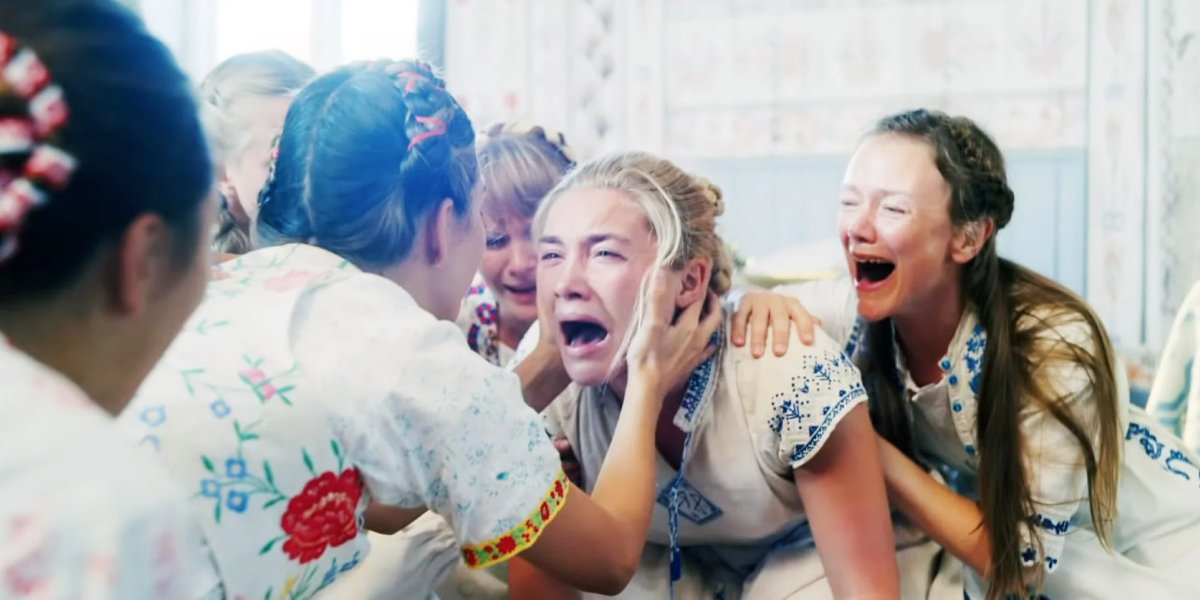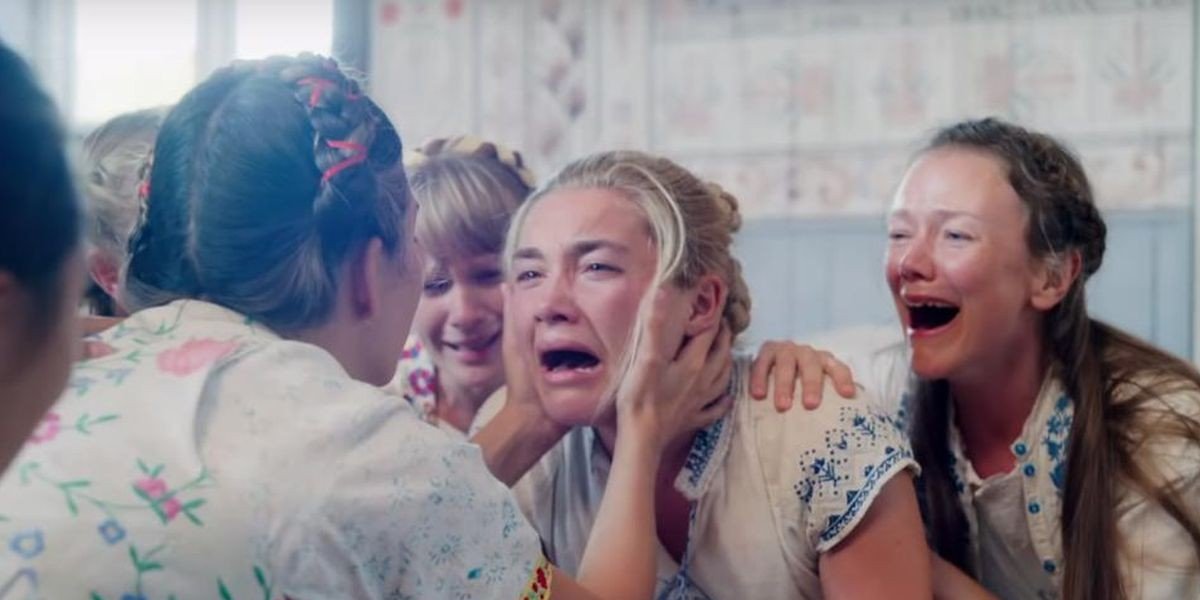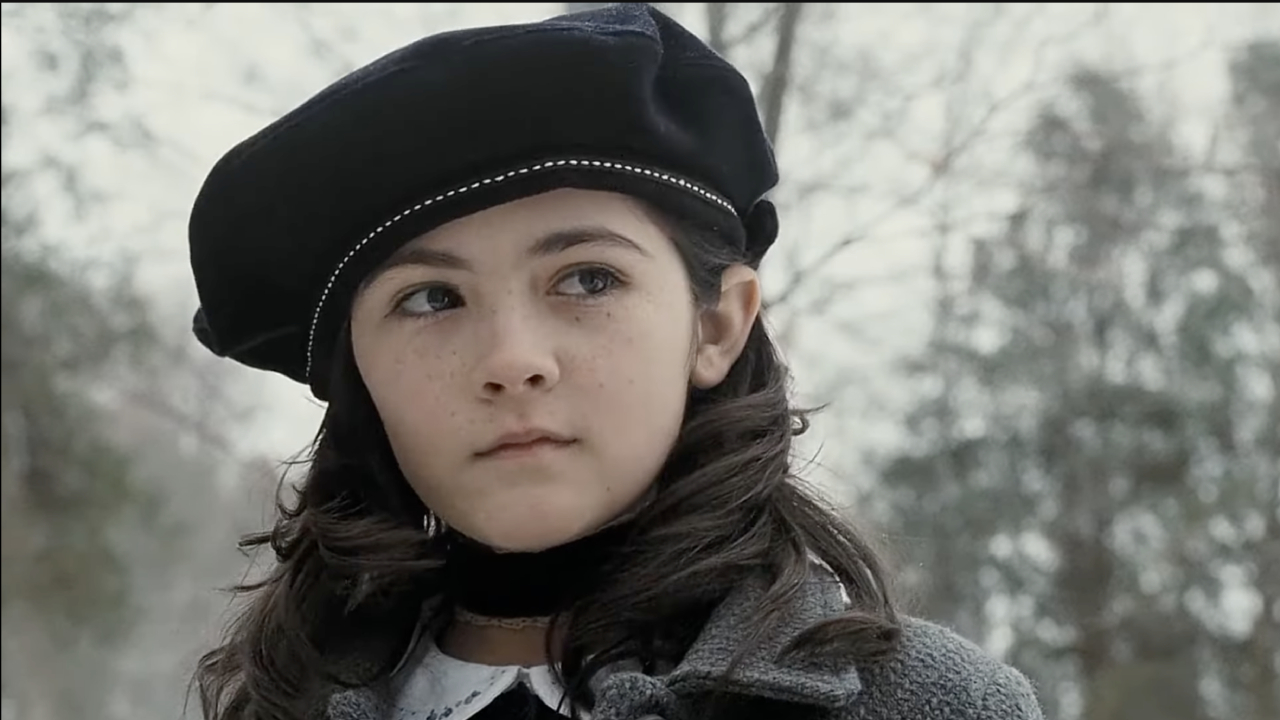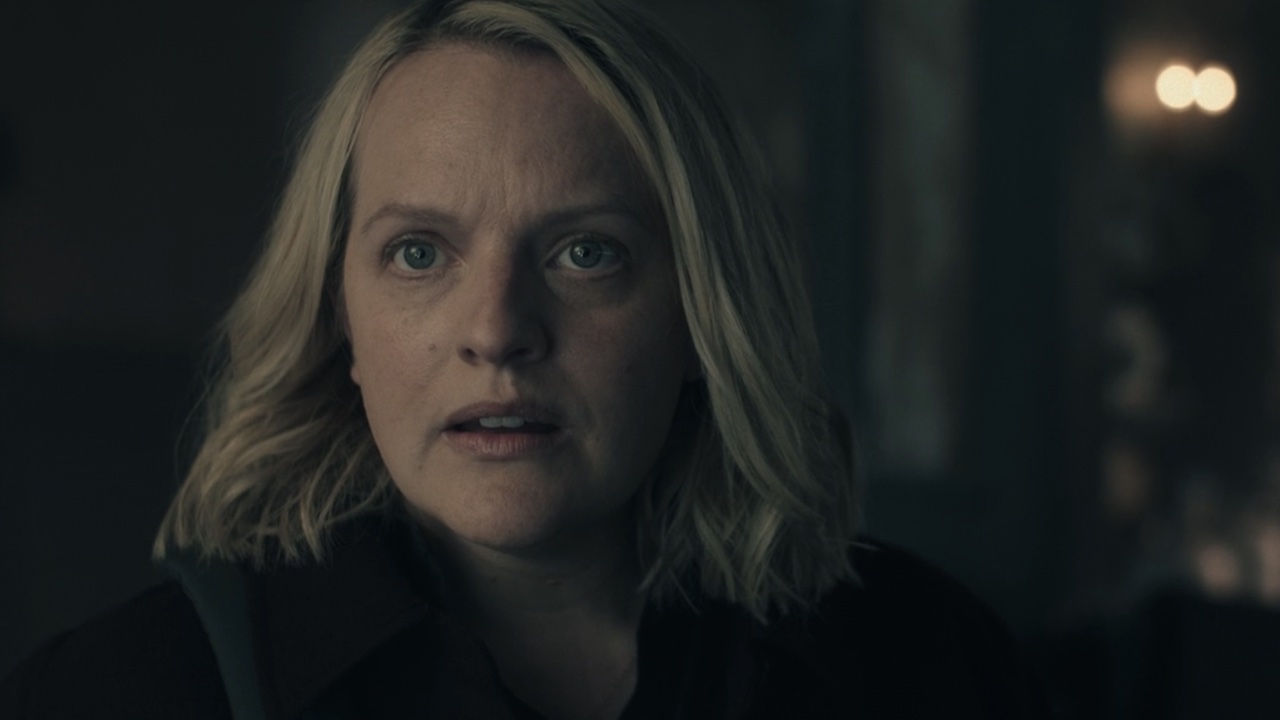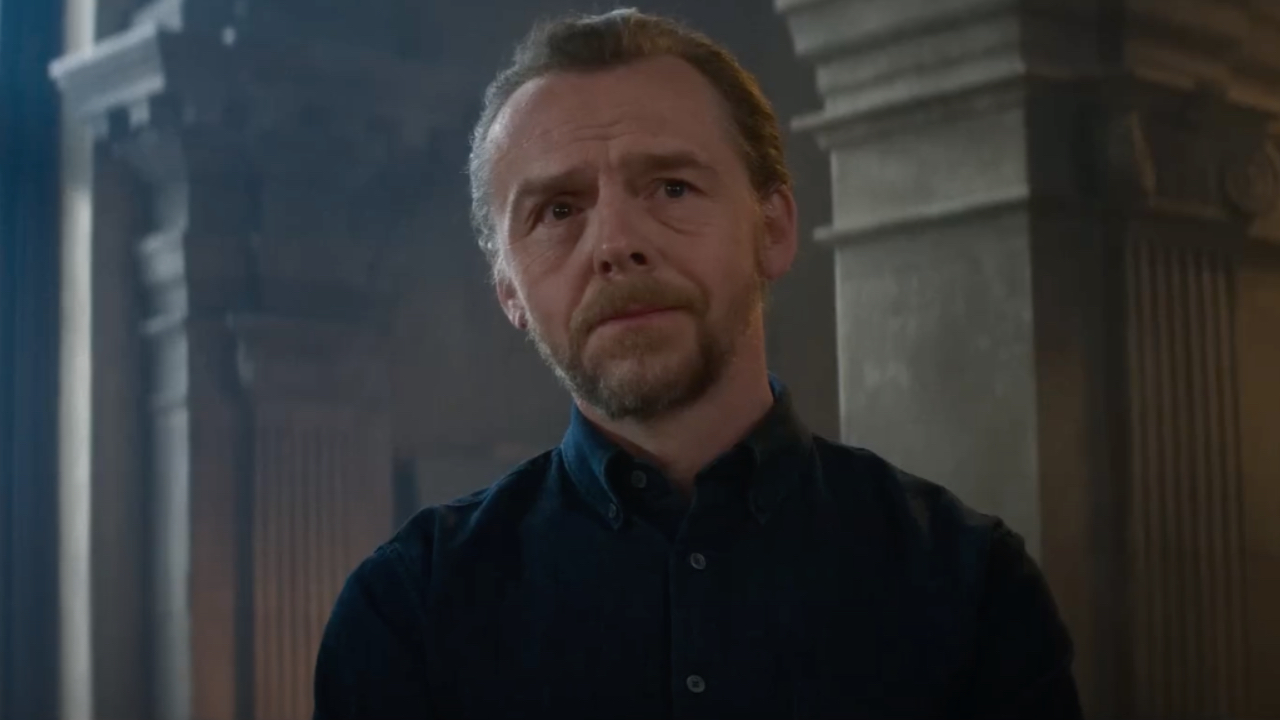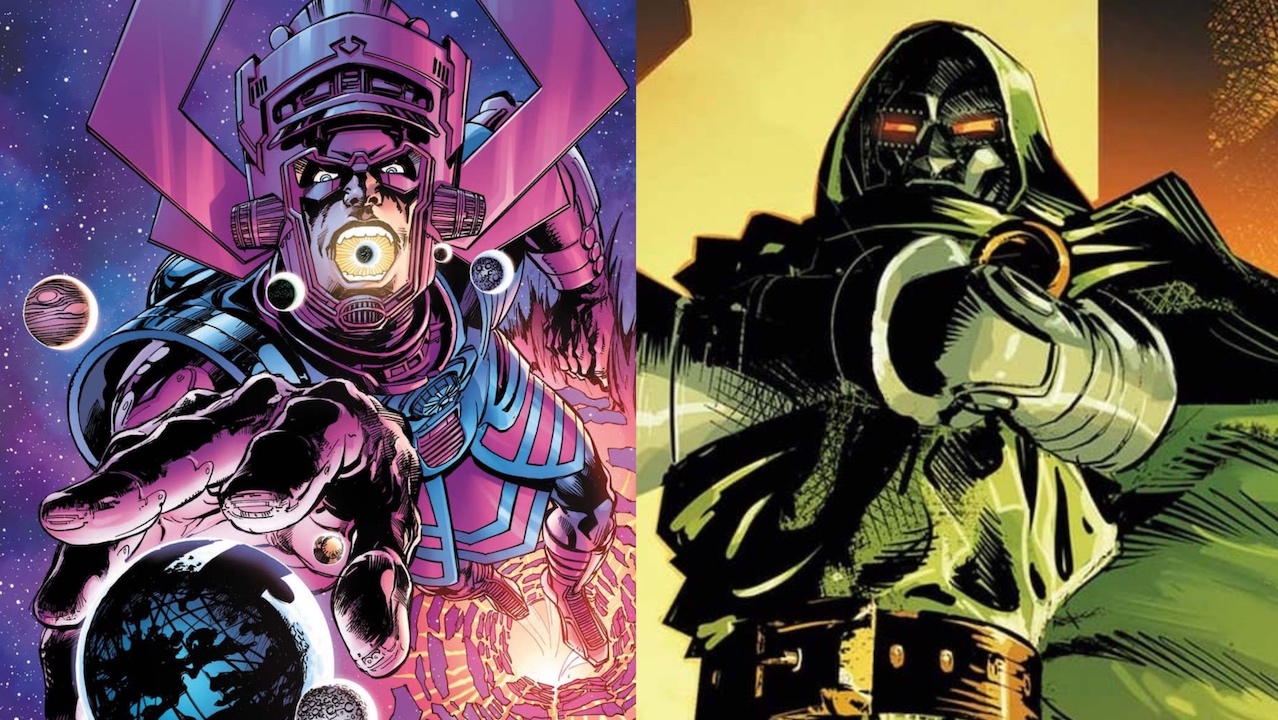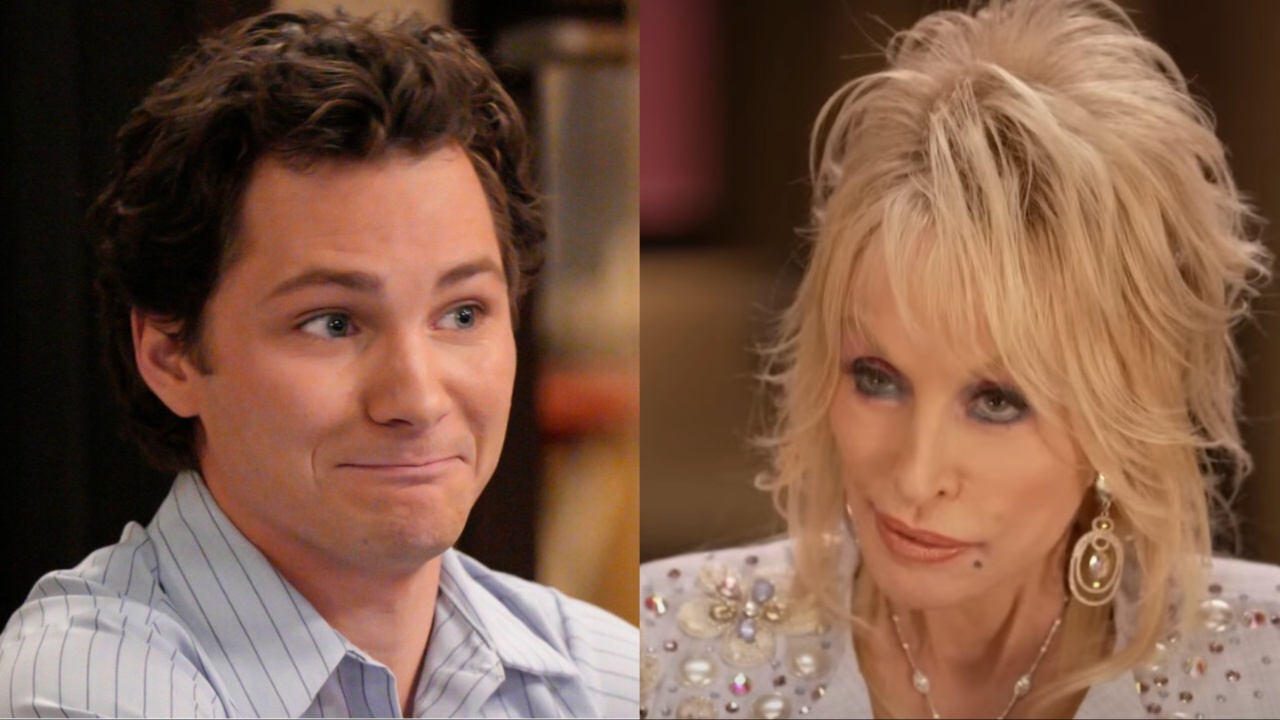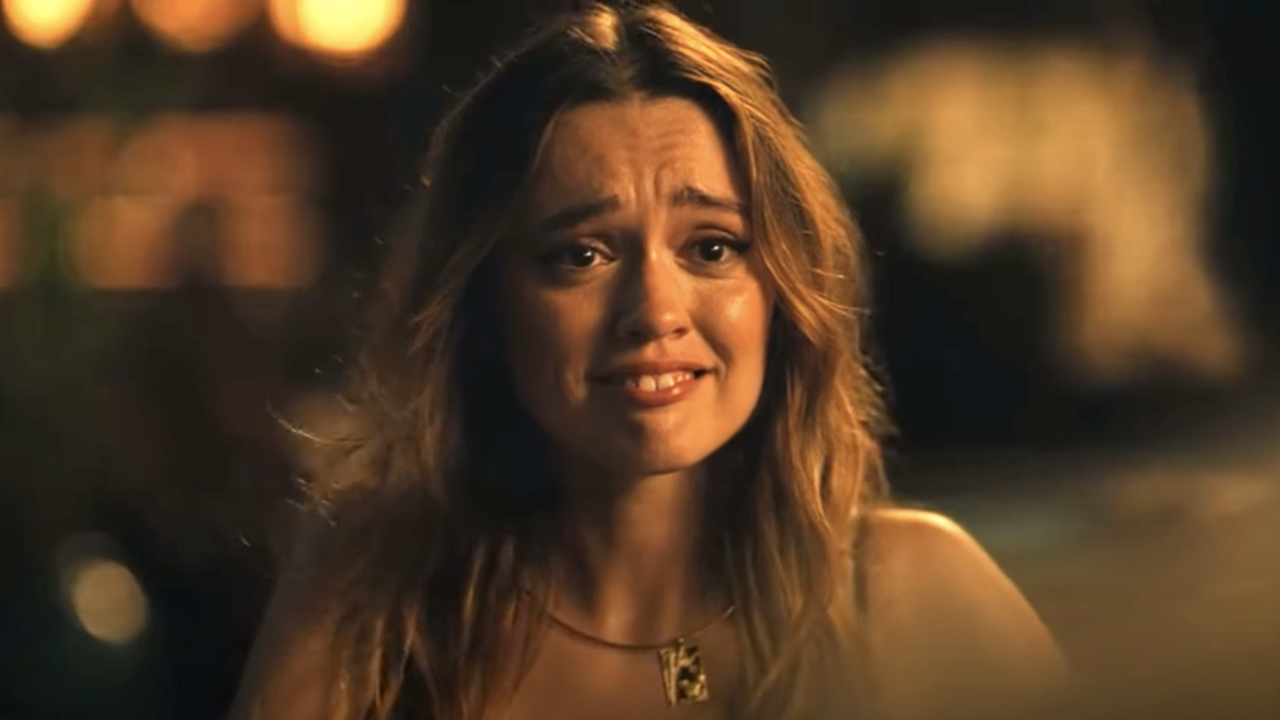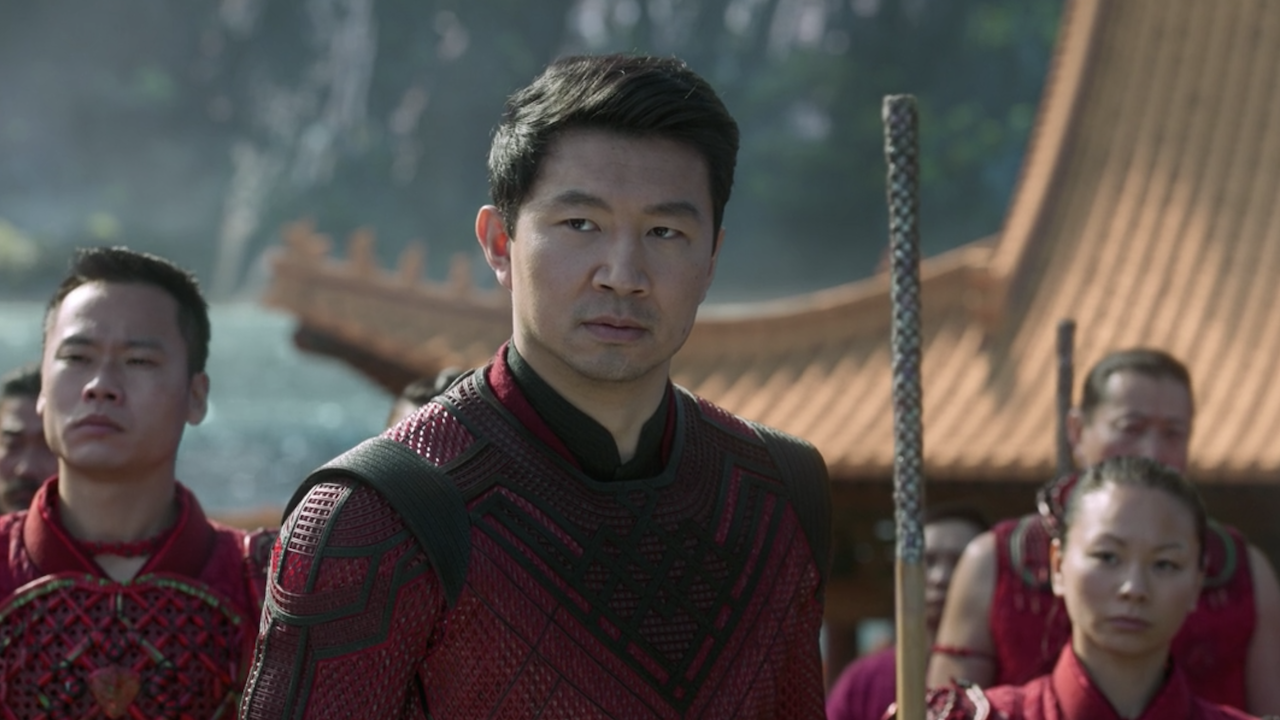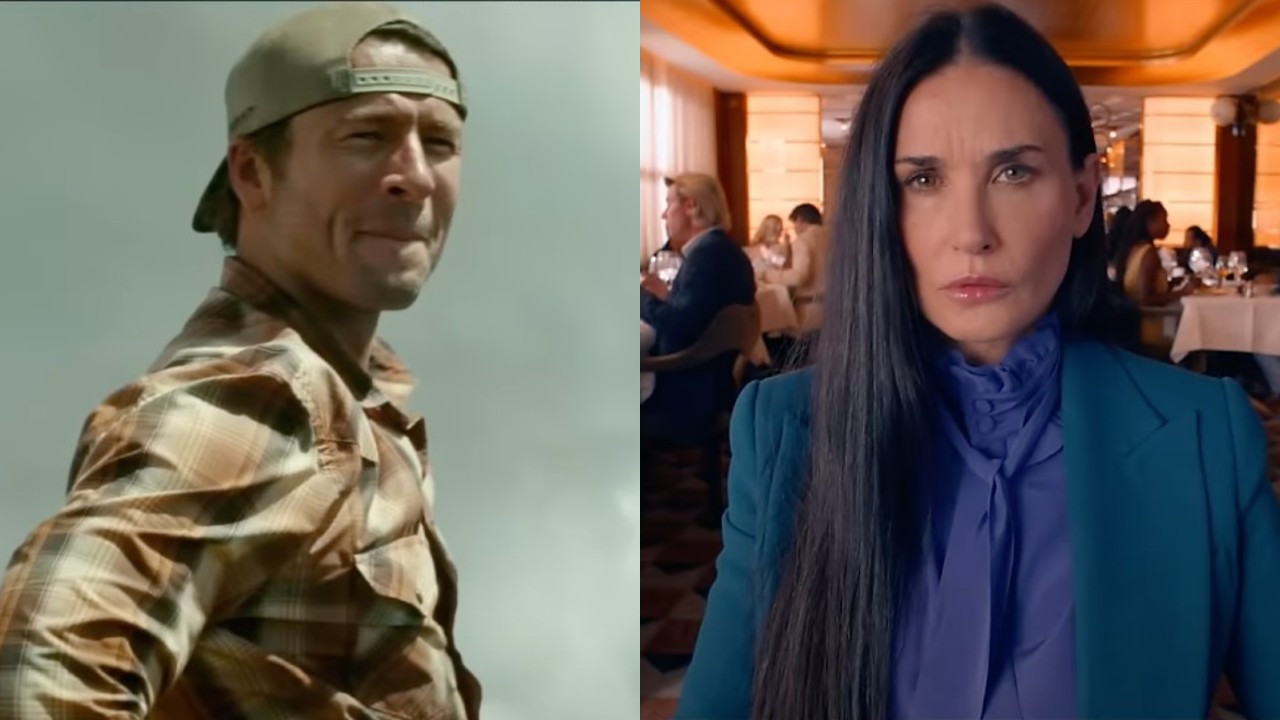Midsommar Ending Explained: What Happens To Dani And What The Insane Twist Means
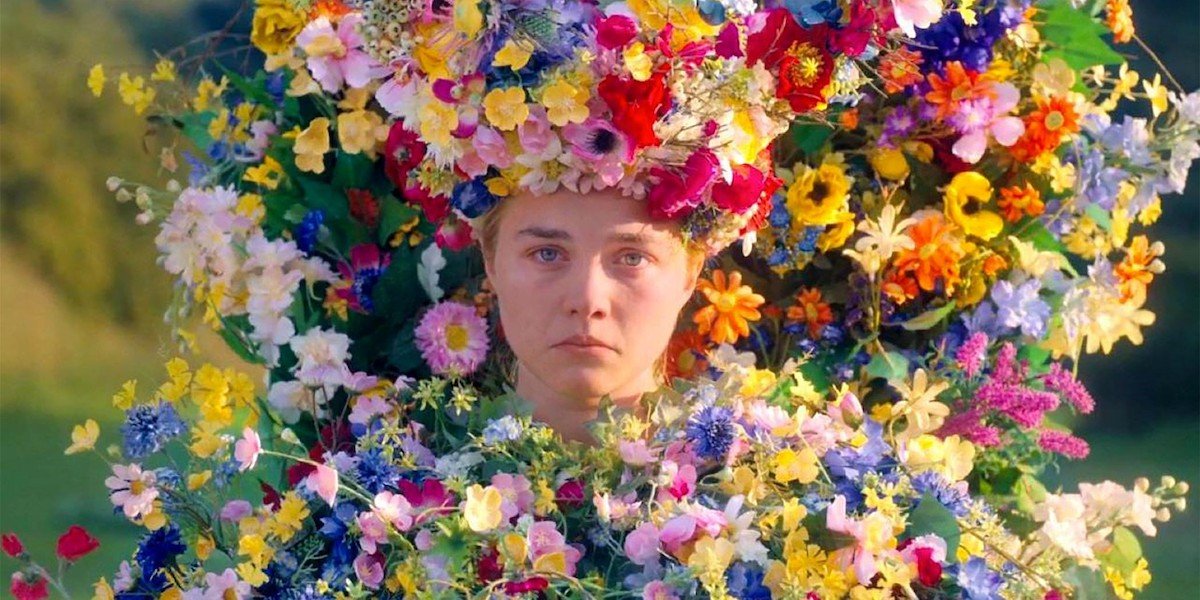
A garden of blooming SPOILERS are ahead for Ari Aster’s Midsommar.
There’s no summer vacation movie quite like Midsommar. Between its bright aesthetics, flower crowns and crew of college friends it has the basis of a fun-loving sunny flick. It is instead arguably the best horror film to come out of 2019 thanks to its shocking visuals, impressive worldbuilding and a memorable leading performance by Black Widow’s Florence Pugh. Since its release, the most talked about element of Ari Aster’s Hereditary follow-up is undoubtedly the Midsommar ending. There’s a lot to unpack after the conclusion of the Sweden-set flick, so let’s get to it:
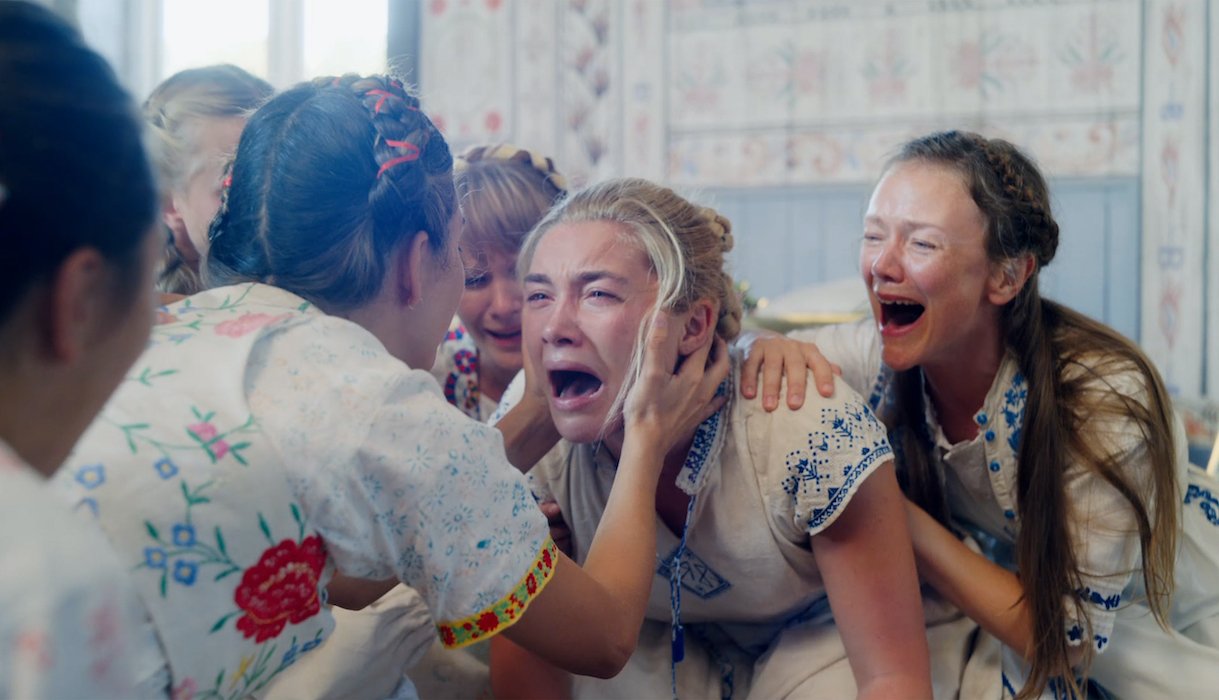
What Happens At The End Of Midsommar
In the third act of Midsommar, all other guests Pelle has brought over to his ancestral commune for the once-every-90-year midsummer celebration have been quietly killed off for the blood sacrifice except for Dani and Christian. Christian has been eyed by Maja, who set her mating plan in motion by giving him a “personal” pie and drink (to say the least) that may be a “love potion”. One of the commune leaders meets with Christian to tell him a mating ritual has been approved between him and Maja due to the pair being a perfect astrological match. At the same time, Dani takes part in a maypole dance ritual while under the influence of psychedelic tea.
During the dance sequence, Dani frolics with the women of the commune as each of them slowly start to fall around her and lose out of the competition. As one of the final dancers, Dani starts to talk and understand Swedish in her buzzed state. Then the other final two run into each other, leaving Dani as the last one standing. Dani is crowned as the festival’s “May Queen” just as Christian is given drugs as well and takes part in the sex ritual with Maja. Dani catches her boyfriend in the act through a hole in the wall and grieves with her new commune sisters with some intensified collective yelling (as you do).
After the ritual, Christian runs out of it naked and feeling disoriented. He stumbles onto the dismembered body of one of Pelle’s attendees at the festival before being knocked out by a member of Harga. Christian wakes up to the final ritual of the festival without the ability to move or talk. We learn that the other fallen friends that came with Christian and Dani will be four of nine sacrifices to conclude the festival. Another four are Hargan residents.
The ninth and final sacrifice must be chosen by Dani, the May Queen. She must choose between the last “new blood” of the festival Christian or a Hargan that has been picked at random. Dani looks disoriented and in pain as Christian is chosen, stuffed into a carcass of a bear and burned in the temple with the eight other sacrifices. The Hargan people dance around Dani in a massive floral dress as her painful expression transforms into one of peace and joyfulness at the burning building.
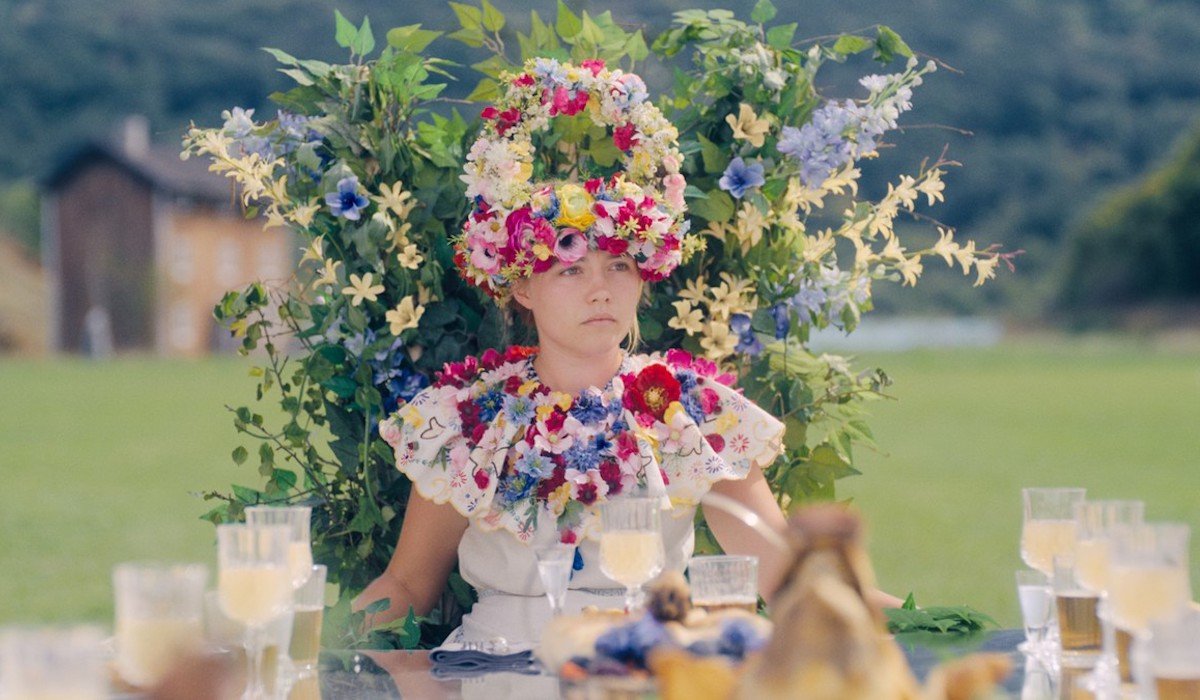
What It Means When Dani Becomes The May Queen
To bring it back to the beginning of Midsommar, Dani’s character arc begins with a rocky relationship with Christian being made apparent and the death of her parents and sister. Her journey to Sweden with Christian’s friends to Harga is an emotional journey full of grotesque imagery that reflects Dani as she wrestles with her grief and relationship falling at the seams. When Dani finds herself in the dance competition and she speaks Swedish, it marks a swift shift of the film toward acceptance into her new family in the commune. For the first time in the film, she is being embraced.
CINEMABLEND NEWSLETTER
Your Daily Blend of Entertainment News
When Dani is given the title of May Queen, if you pay close attention both her mother and father are among the crowd. Dani even notices her mother passing her by and calls to her. Since she is still under the influence of psychedelics, chances are they are an illusion. However, their presence signifies Dani finding a family in the commune. When Dani is lifted, there’s a wide shot that features an image of her sister in the top left within the trees. Take a look:
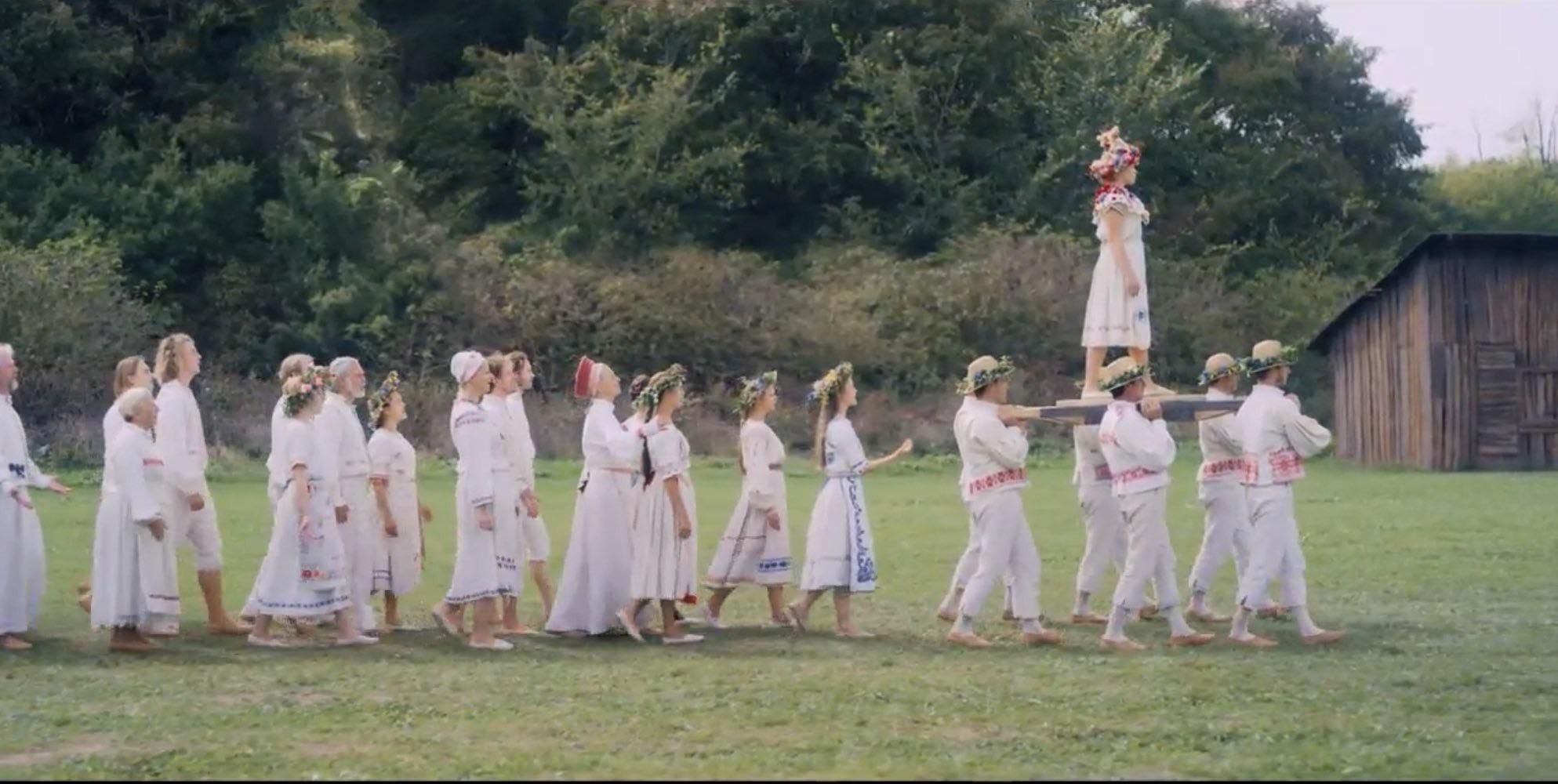
These details support the idea of the May Queen position being a moment of victory for Dani into finding a happy ending in a community, giving way to her relationship. Throughout Midsommar, Christian is also an incredibly unempathetic character and they always seem to be at odds. The juxtaposition of this is shown in the collective yelling scene once Dani finds him with another woman. Her and the commune have a shared empathy for one another. So when Dani picks Christian to die over her Hargan brother, she isn’t necessarily being vengeful, but rather choosing empathy over apathy.
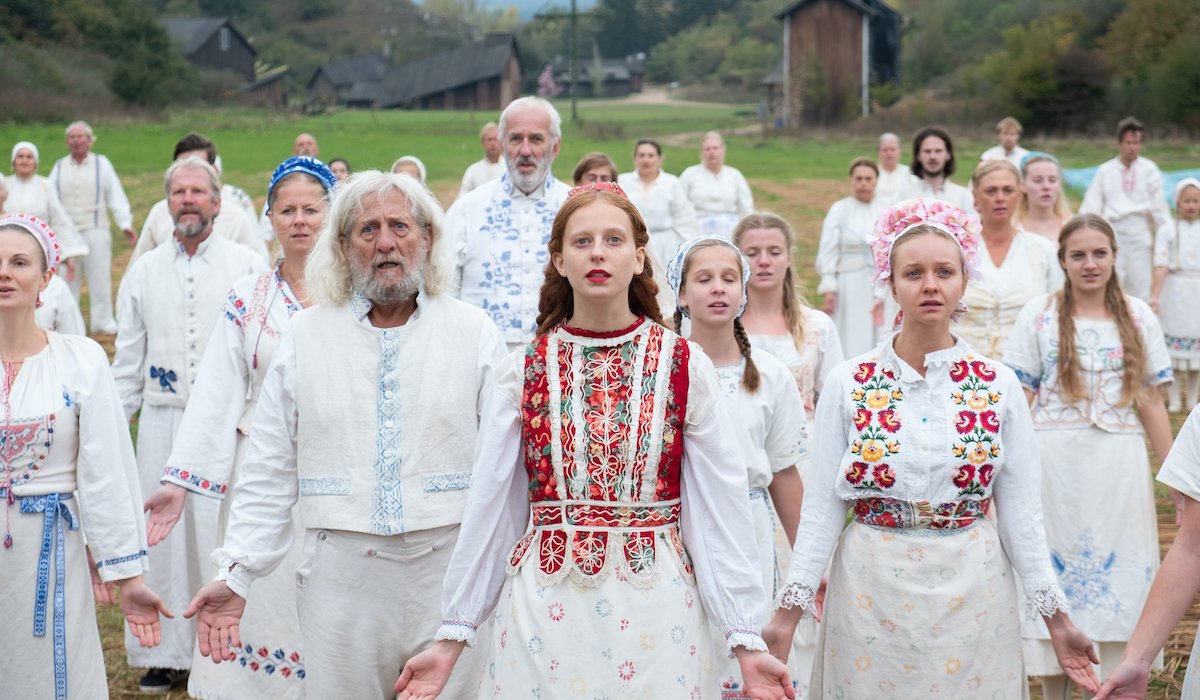
Ari Aster Believes Midsommar To Be A Fairytale
The events that happen within the confines of Harga are objectively horrifying as four young people are murdered and one ritual has an older couple throwing themselves off a ledge in the movie’s most intense sequence. Violence aside, Midsommar’s filmmaker wrote the movie as a twisted fairytale. Aster made the distinction between his version of horror and his vision for the 2019 flick to The Atlantic:
On Hereditary, the movies we watched [during filming] weren’t horror movies, and on Midsommar too. I love horror—Hereditary was absolutely a horror film, I wouldn’t argue against that. This film is adjacent to horror; I wouldn’t call it a horror film. I think of it as a fairy tale with horror elements.
Midsommar also explores the backbones of a fairytale in a perverse way. Aster has explained that orphaning his main character was taken out of fairy tale tropes. The music of the film, use of pagan images to a bear being thrown into the mix. Not to mention it having a “happy ending.” The end of a fairytale typically involves a couple coming together, Midsommar is challenging this by defining it as a breaking away from a couple relationship. Instead of a plain white dress, Dani is being celebrated with a heavy dress full of flowers.
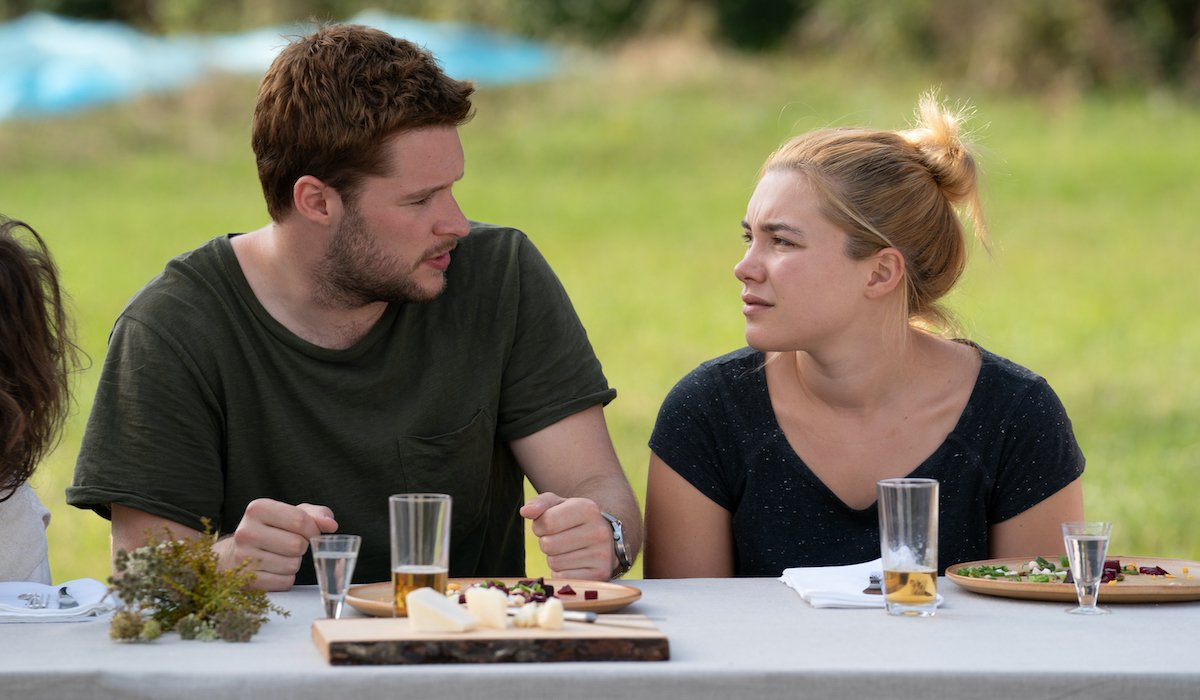
Midsommar's Ending Is A Commentary On Breakups
Other than the ending of Midsommar acting as Ari Aster’s form of fairytale, it was also made as a unique kind of breakup movie. The entirety of the film unfolds as Dani and Christian realize they need to live separate lives and the events of the film help drag them along to this conclusion. It’s obviously an intense over exaggeration of what a breakup would and should ever look like, but the experience of the movie itself simulates the queasy, disgusting elements of going through a falling out with a personal you once deeply loved. Aster explained himself to USA Today with these words:
Obviously, you have literal sacrifice happening, where they are sacrificing themselves and other people to this greater thing. Then you have the question of, 'What does it mean to sacrifice things that matter to you in order to be a relationship with somebody else?' It's a cheeky way of getting at these questions you find yourself asking when you're considering what keeps a relationship alive.
Through its bright imagery Midsommar is also one of the few breakup films to show the process of uncoupling as one of joy and freedom over sorrow and grief. Dani’s real sorrow was how bogged down she felt when she was with Christian, who seemed to drag her around rather than loving and cherishing her. In a moment between Pelle and Dani, when he asks if she feels “held by him,” it's a key moment to Dani’s realization. The last image of Christian being burned alive and Dani smiling is visually showing one the at-times violent removal one must do with someone in order to find peace with herself. For Dani it's burning her bear-stuffed boyfriend alive, in the real world it might be as simple as deleting him off your contacts list. Whatever works for you!

Florence Pugh And Ari Aster Disagree On The Final Shot
Now there’s one final element of Midsommar’s ending that has been among debate and that is whether Dani was of sound mind when she chose Christian to burn in that bear suit. From observation, it's clear there are some complicated elements at play here. Dani has just lost her entire family and Christian did contribute to their deaths since she called him first instead of the paramedics. She also just witnessed Christian having sex with another woman after many years together. Oh, and there’s a ton of drugs on Harga. It is understandable audiences might find difficulty in supporting Dani’s final decision to kill her boyfriend. He was not a saint to her, but did he deserve to die?
The final shot of the film featuring Dani smiling at the flame has created two diverging opinions from star Florence Pugh and writer/director Ari Aster. The actress who played Dani said this of the memorable moment:
I thought it would be so interesting to have the love of her life in the building and she's a kid looking at a firework. That's how I imagined it, saying, 'This is someone that's completely gone now. She doesn't realize what's going on, and she's just really happy the fire is going up.' So when we shot it, that's what I was trying to get at. That's what made the ending possible (for me). I don't think I would've supported Dani as much if she knew that he was in there. I don't think anybody is that sinister. You're not going to watch your boyfriend cheat and be like, 'Burn!' I know Christian was a bit of a (expletive), but I didn't want her to be evil at the end.
To Florence Pugh, she’s disoriented and isn’t quite sure what’s going on. Now this is a subjective response since actors often must place themselves on the side of their characters and she could not accept the idea of Dani being vengeful or villainous in any way. But Aster wrote and directed the movie and supports that Dani knew exactly what she was doing at the moment of the grin. In his words:
I wouldn't agree with there ever being an iteration of the movie where she didn't know he was burning. But there were a lot of scenes that were cut, and probably a few that helped illustrate she was losing her grip on her sanity, which you hopefully still see.
And that’s what happened at the end of Midsommar. Get it yet? The depth of Ari Aster’s second feature is why he’s quickly becoming one of the most respected new horror directors right now. It’s a shocking movie, especially upon first watch and one we’re not forgetting anytime soon. Stay tuned here on CinemaBlend for more reads on great movie endings.

Sarah El-Mahmoud has been with CinemaBlend since 2018 after graduating from Cal State Fullerton with a degree in Journalism. In college, she was the Managing Editor of the award-winning college paper, The Daily Titan, where she specialized in writing/editing long-form features, profiles and arts & entertainment coverage, including her first run-in with movie reporting, with a phone interview with Guillermo del Toro for Best Picture winner, The Shape of Water. Now she's into covering YA television and movies, and plenty of horror. Word webslinger. All her writing should be read in Sarah Connor’s Terminator 2 voice over.
